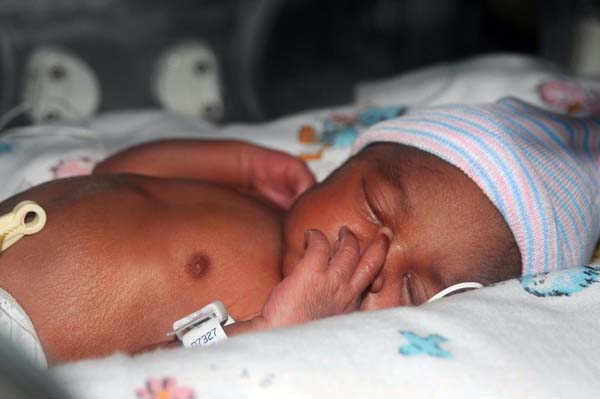A new study published in the journal Brain, has identified that once children born prematurely reach school age, they are more likely to have a reduction in working memory and lower mathematical scores. The results suggest that neonatal MRI may be useful in predicating future cognitive function, allowing for early learning interventions.
The researchers studied 224 children born preterm, as part of a Murdoch Children’s Research Institute study in Melbourne, Australia. The children were assed for academic achievement at ages five and seven, and the test results were compared to MRI scans performed soon after birth.
The study authors note that knowing at a young age whether a child is at a higher risk of learning disability once they reach primary school, could enable clinicians to provide early intervention learning resources to the parents of the child. According to the study, neonatal MRI is a useful tool for identifying future academic success.
The study identified an association between neonatal MRI scans showing local brain volume, and the number of skills and working memory of an individual during childhood. Brain microstructure of neonates was positively correlated with working memory scores in childhood. In contrast, high tissue volume in the left insula and putamen regions of the Jacobian map of the neonatal brain, had a high association with advanced number skills scores in school aged children.
According to the co-author of the paper, Henrik Ullman, “Our findings demonstrate that brain microstructure and increased tissue volumes in regions located around the insula and putamen during the neonatal period, are associated with better early mathematics in preterm children.”
Another co-author of the paper, Megan Spencer-Smith, commented that, “This knowledge could assist in identifying infants at risk of mild academic impairments, who would benefit from monitoring and referral to early intervention. Such an approach could assist in reducing the number of preterm children performing below their peers in mathematics.”
In addition to the potential benefits of detecting mathematical and memory impairment early-on, the researchers suggest that early intervention could lessen future emotional and behavioral issues. This study has far-reaching implications into the success of children in school, as well as their future well-being and mental health as adults.
Sources:
- The risk of cognitive impairment in children born prematurely may be predicted using MRI after birth – http://www.alphagalileo.org/ViewItem.aspx?ItemId=155982&CultureCode=en
- Ullman, H., Spencer-Smith, M., Thompson, D., Doyle, L., Inder, T., Anderson, P., and Klingberg, T. (2015). Neonatal MRI is associated with future cognition and academic achievement in preterm children. Brain.












Join or login to leave a comment
JOIN LOGIN